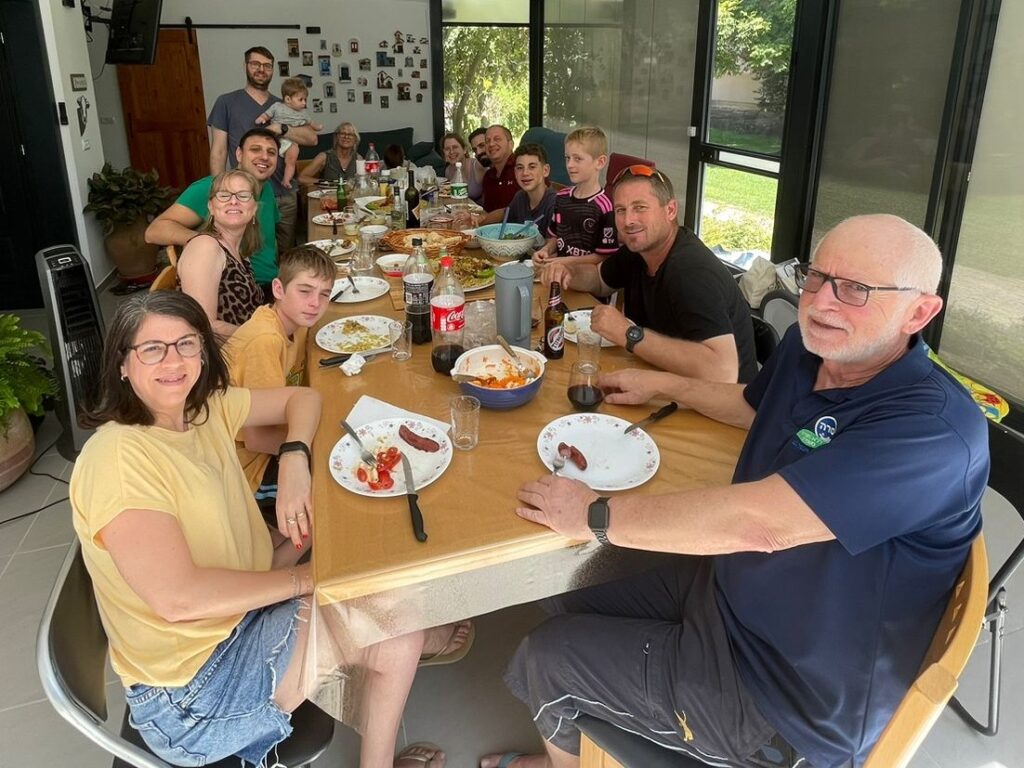Fifty Hamas gunmen invaded as 100 circled the fence: man will never speak the worst atrocities aloud
Alarmed, I looked over at my grandson in fear. “What if something happens to him,” I worried. What occurred next can only be described as horrible: we heard children and babies being burned.
- 2 years ago
March 28, 2024
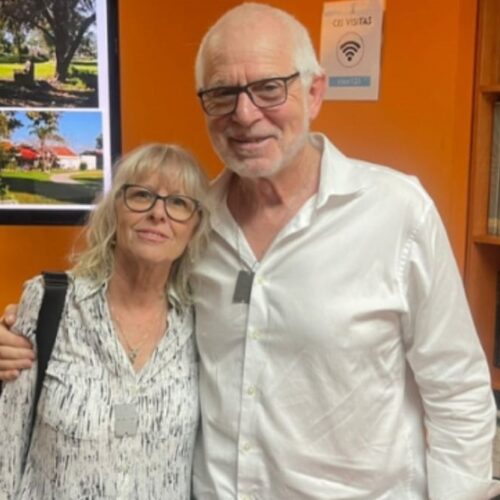
NIRIM, Israel ꟷ On October 6, 2023, we joyfully celebrated the seventy-seventh anniversary of the Nirim kibbutz. My children and grandchildren came for the beautiful party. I watched as the kids playfully enjoyed the inflatables. At 6:28 the next morning, the Tzeva Adom or red alarm sounded – an early warning radar system installed by the Israel Defense Forces in several cities surrounding the Gaza Strip. It warned civilians of a missile attack.
We have eight to 10 seconds to reach the shelter when the alarm sounds, so we immediately rose and took little nine-month-old Laví from the crib. We locked ourselves in the mamad or safe room, specially designed to protect us. These safe rooms were built by the Isarel government in each house after 2014 when a terrorist attack by Hamas went on for 50 days leaving several people dead.
The first sign we faced a different kind of barbarism surfaced around 7:30 a.m. when a call came telling me a missile fell on the kibbutz’s dairy farm. I run the farm, so I left the room to go see what happened. My family said, “Where are you going? You’re crazy!” Without hesitation, I got in the golf cart and left.
Read more stories out of the Israel-Gaza conflict at Orato World Media.
After finding dead cows at kibbutz farm, man hears gunfire and makes his way home
Three times on the way to the dairy farm, I leapt off the golf cart because missiles kept falling. Upon arrival, I found a bunch of dead cows, a broken roof, downed solar panels and electricity, and water shooting out of punctured pipes. I told the Thai workers to flee to the safe rooms in their houses and stayed to finish some things before returning to my own shelter.
On the way home, I heard gunshots nearby but failed to understand the gravity. Then I heard someone shout, “Marcelo.” “What’s going on,” I shouted back and heard a man say, “Didn’t you hear there are terrorists?” “I came from the dairy farm,” I responded. “I didn’t hear anything.” Now visible, he had a desperate look of fear on his face. “How,” he asked in disbelief that I didn’t know. I told the man I only just heard the gunshots.
I thought my neighbor was exaggerating as I made my way home when suddenly, my wife Diana wrote to me on the phone. “Come back urgently,” she pleaded. “There are terrorists in Nirim.” Back at the house I looked at my WhatsApp group with 500 members from the kibbutz. The atrocities finally became real. “They’re burning my house,” someone wrote. Another one said, “They’re shooting at me.” People reported choking on smoke inside their homes and gun blasts through doors and windows.
I knew every one of those people. The messages felt like hearing all their voices and screams at once, pleading for help. They needed rescue urgently from the kibbutz emergency group called the tzavah. Desperation set in for all of these people. Though I only read the account, I felt like I heard their cries for help with my own ears.
Little boy in the safe room turns blue due, intense fear sets in as Hamas attacks
Forty-seven years ago, I made “Aliyah” or the immigration to Israel. I didn’t know my neighbors or wife then, and I never imagined I would one day return to Latin America to tell this tale. In 1976, a group of friends and I from the Maccabi Leaders Course traveled to the Nirim kibbutz where I met Diana. Ninety-five percent of the time the kibbutz is our paradise, but five percent, the alarms blare signaling life and death warnings.
Even with that in mind, I never imagined the people would succumb to such a vicious and brutal attack. Having lived 20 years under the threat of missiles, we felt accustomed to the alarms. On October 7, 2023, we said, “Don’t’ worry, we will be out in 10 minutes,” but the missiles never stopped. There were dozens of them, then the terrorists came.
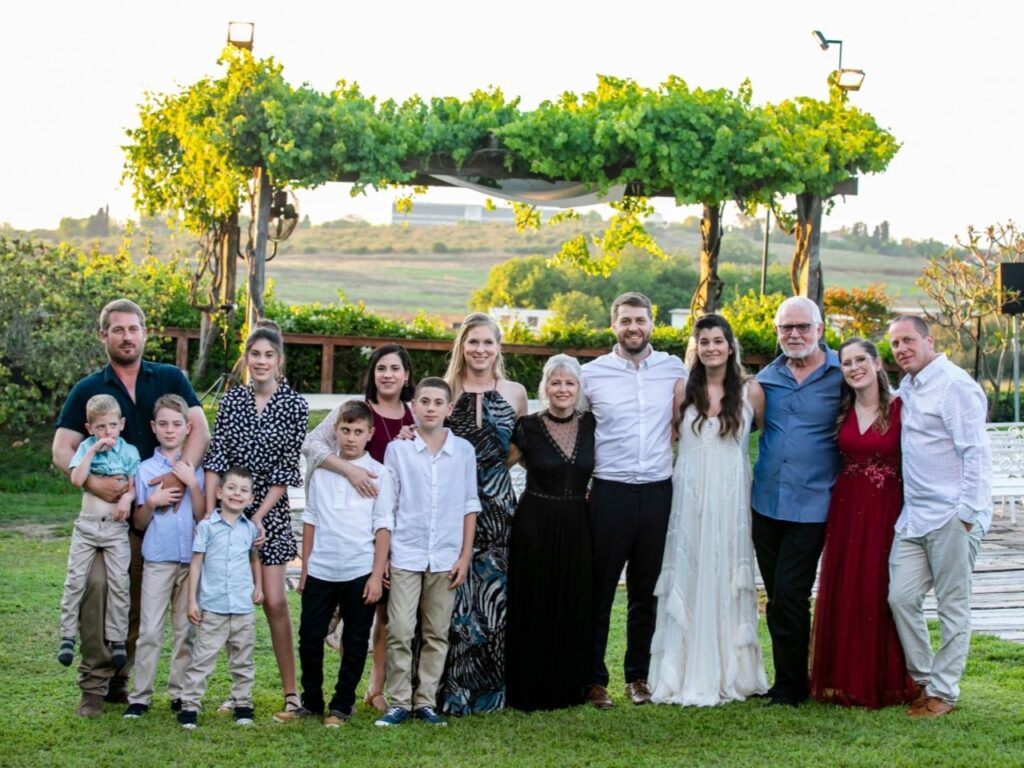
Amid the horror and uncertainty, inside the shelter we turned off the light, the air conditioning, and the television. We closed the blinds, hoping the dark silence would deter Hamas and they would move on to another house. Another Argentinian family with a nine-year-old son desperately wrote a note in WhatsApp: “Our son is turning blue.”
The airtight room began to lose oxygen but opening windows remained impossible as screams in Arabic and gunshots blared outside. Alarmed, I looked over at my grandson in fear. “What if something happens to him,” I worried. What occurred next can only be described as horrible: we heard children and babies being burned.
After sedating the dogs to keep them quiet, family hears what sounds like machine gun fire in kibbutz
A stark warning appeared on WhatsApp from neighbors as we huddled inside the safe room: “Hold the door handle,” they urged, “so they cannot open it!” My son rushed forward to put a piece of wood on the door, preventing it from opening. The shelters protect us from missiles and bombs, not men on the ground trying to kill us.
As people held the doorknobs, the Hamas terrorists began shooting them out. We heard news of people wounded from bullets passing the knobs. One of the party goers from the day before bled to death, unable to keep the terrorists out.
Fear consumed us: what if the baby cries? We had no water or powdered milk for the bottle; no diapers because we thought our time in the safe room would be brief. We never measured the inhumanity of Hamas, and our panic grew with each passing minute. The gunshots continued and the distant voices speaking Arabic left us desperate.
For years in the shelter as alarms blared and missiles flew, our two dogs barked like crazy as if their hearts might burst, so on this day, we gave them sedatives. “When will this end,” our minds shouted. Just then, the deafening sounds of the attack grew. We thought we heard a heavy machine gun on the roof of our house. We soon found out it was an Israeli helicopter.
We waited a total of 12 hours for the army to save us as the kibbutz remained under fire, but another worry grew in my mind. What happened to our other children who did not spend the night? We sent chat messages trying to reach them but received no response.
Man will not speak aloud some of the horrors he witnessed
At dusk, the IFS took us to a shelter guarded by the Army. Those of us who were together – my wife and I, my son with the stroller and a baby in his arms, and my daughters – stood in line. The IFS evacuated Nirim bit by bit and we soon saw some of our neighbors. We finally received food and water and prepared a baby bottle with what little powdered milk we had. As more individuals from the kibbutz approached, we heard stories of atrocities.
Then, our two adopted children arrived. They said Hamas threw two grenades at their home and they only lived because the terrorists moved on to another house. My mind drifted to my other daughter who lived in Moshav. I worried about what happened to her and my other three grandchildren.
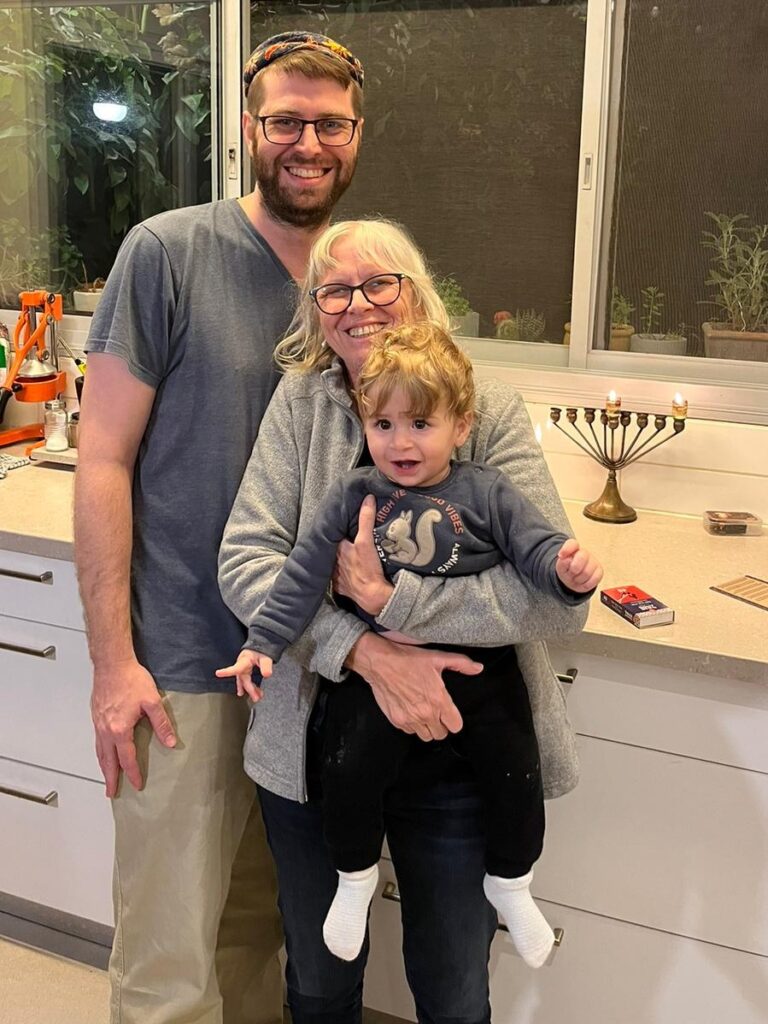
I heard news that the girls who monitored the border camera footage each day had reported the arrival of many vans, but we never imagined this; we never predicted thousands of Hamas terrorists would enter Israel in an unprecedented attack. We later learned 50 Hamas gunmen came into Nirim, followed by 40 looters. Another 100 terrorists lingered at the fence surrounding our community.
Someone told me Hamas planned to conquer two or three kibbutz. They did much worse. They massacred 1,400 civilians with brutality, the facts of which still feel indescribable. I prefer not to go into detail about some of what I saw; it is too atrocious. They wounded another 5,000 and kidnapped 240.
The aftermath, a united Israel, and the people of Gaza
The irony of all of this is we always felt safe; we never imagined something of this scale. It will take great work to bring us back to what we once were. We expect we will not return home for at least a year. The entire infrastructure of Nirim must be rebuilt. The hardest thing to rebuild, though, is trust.
We remain the fortunate ones. None of our family members came to physical harm. Still, we will endure this moment [psychologically] for a long time. I feel the importance of speaking out now; it is my mission to share what happened in Nirim. Israel did not seek war. We want to live in peace.
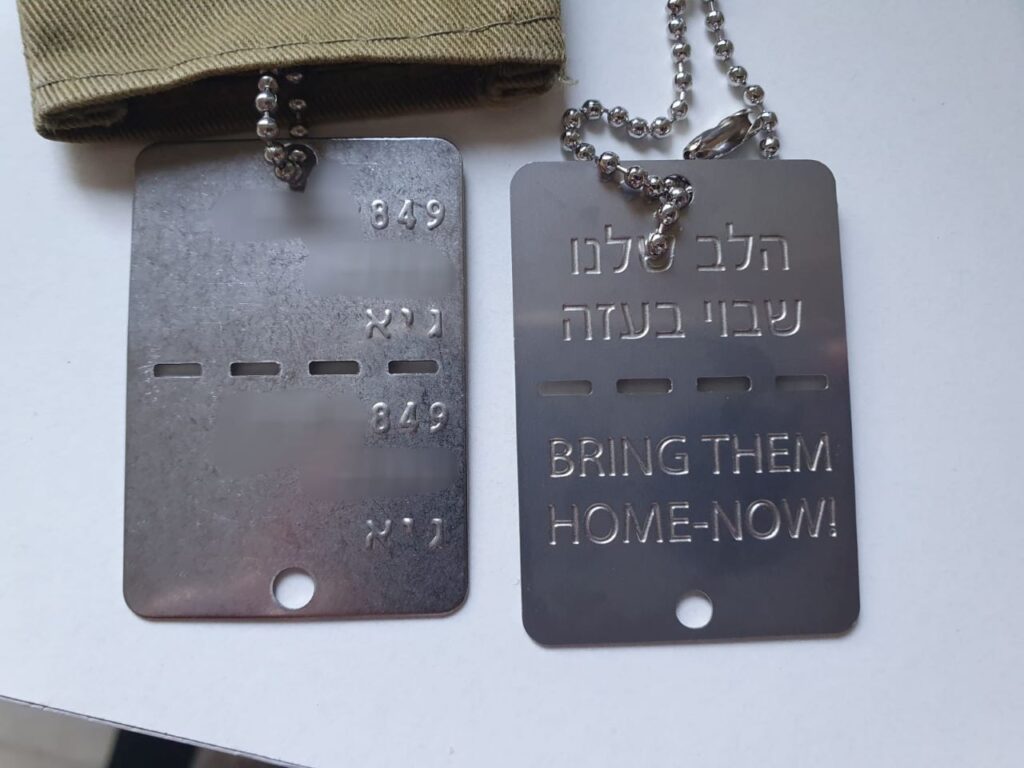
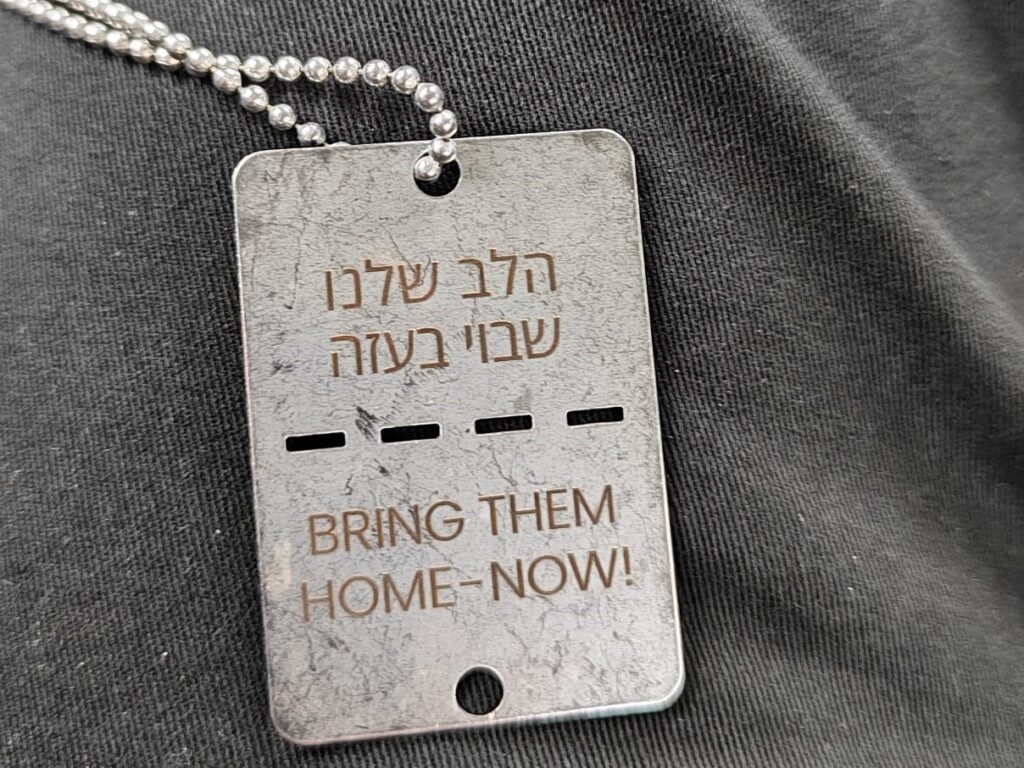
Talking about October 7, 2023, when a Hamas terrorist group attacked Israel, feels like a bitter pill worth swallowing. Each telling brings intense anguish; we live it all over again. Yet, it also reveals some truths. There in Nirim, huddled in our shelters, we were not the bad guys; we never wanted this.
I think often of the people – the children and mothers of Gaza. Hamas uses them as human shields. They deserve to see their children flourish, grow, and smile. Now, the people of Israel must remain united. We all deserve to live in peace.

